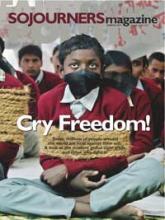The Annual Review of Development Effectiveness, a major report by the World Bank's Independent Evaluation Group released in early December, criticized World Bank policies and project design as leaving tens of millions of people, especially the rural poor, "suffering stagnating or declining living conditions." The group's conclusions were no surprise to the poor or to those who accompany them in their daily struggle for survival.
For 25 years critics of the macroeconomic model unwaveringly promoted by the World Bank and its sister organization, the International Monetary Fund (IMF), have called for a fundamental shift away from top-down policies and mega-projects to allow space for more appropriate approaches to economic life that respect the local social and ecological context and the socio-economic and cultural human rights of the poor. The work of 2006 Nobel laureate Muhammad Yunus and the Grameen Bank has been one example of an alternative approach.
Beginning in the early 1980s, the World Bank's "structural adjustment policies" had initiated the shift to "neoliberal" economies in poor country after poor country. Although structural adjustment aimed at laudable goals such as controlling inflation and stabilizing out-of-control economies, its policies left the poor even more vulnerable as social safety nets disappeared and health care, education, transportation, and utility costs rose dramatically.
The 1990s saw an increased pace of neoliberal reform and the globalization it was helping to shape. Production shifted from food staples and basic goods for domestic use to commodities for export.Whole sectors of economies in which the poor were able to participate—especially subsistence farming and small businesses—were destroyed as cheap imports flooded local markets.
Read the Full Article
